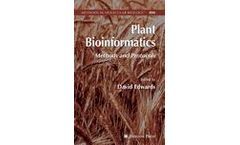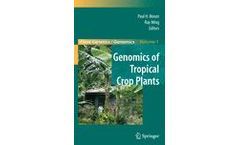Refine by
phenotype books
6 books found
Site Specific and Global Epigenomic Editing: Principles and Applications, Volume 33 highlights the expanding role that epigenetics plays in pathogenesis, the full range of sites for possible epigenetic modification, and the potential to target these sites to modulate disease progression. The book answers key questions, including which of the hundreds of epigenomic marks and features are relevant, ...
Each chapter is devoted to a particular disease and describes the role of the transporter under physiologic conditions, including how this translates into the phenotype of the disease when the transporter is also included. This title includes short summaries on the physiological role of the transporters, structure, and pathophysiology, which ...
All the contributions chosen for publication focus on phenotypic and genetic ...
Data volumes continue to grow and there is an increasing breadth of available data, including sequence, gene expression, protein, metabolite and phenotypic data. Novel databases are being developed for specific species or experiment types. ...
Bioinformatics is a relatively new field of research. It evolved from the requirement to process, characterize, and apply the information being produced by DNA sequencing technology. The production of DNA sequence data continues to grow exponentially. At the same time, improved bioinformatics such as faster DNA sequence search methods have been combined with increasingly powerful computer systems ...
There is a critical need for a book to assess the genomics of tropical plant species. Early genomics successes resulted in tremendous advances in high throughput technologies and data management that greatly reduced costs and increased rates of data accumulation. In addition, the early plant successes showed that, although Arabidopsis can be a reasonable model for dicots and rice a model for ...






